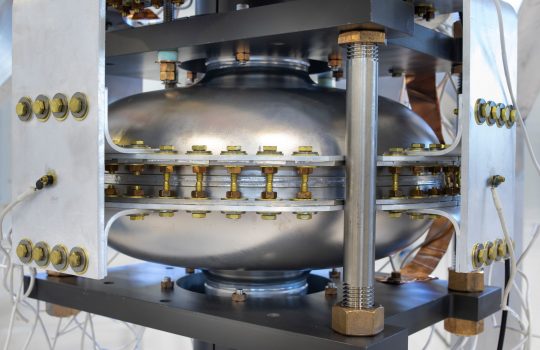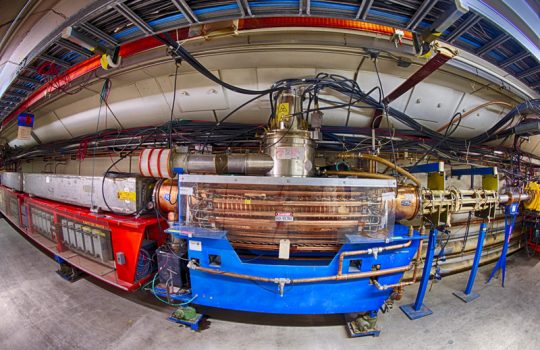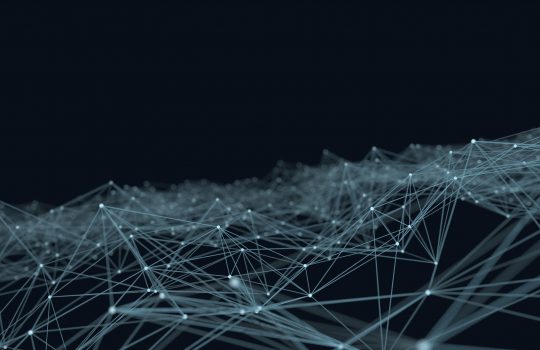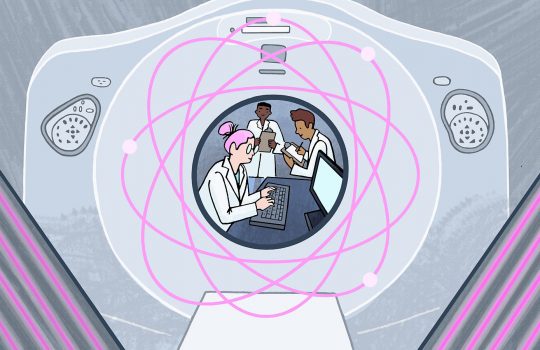Neutrinos lead to unexpected discovery in basic math
From Quanta Magazine, Nov. 13, 2019: Fermilab physicist Stephen Parke, University of Chicago physicist Xining Zhang and Brookhaven National Laboratory physicist Peter Denton wanted to calculate how neutrinos change. They ended up discovering an unexpected relationship between some of the most ubiquitous objects in math.






